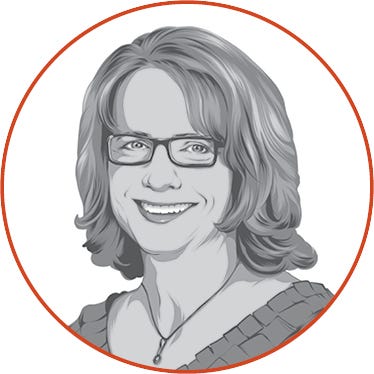
As farms grow in size and complexity, many owner-operators find they need more robust financial expertise. Increasingly, they hire a controller or Chief Financial Officer (CFO) to take their accounting and finance acumen to the next level.
KCOE-Isom, a large agricultural consulting and accounting firm and the company I work for, recently conducted a survey to benchmark compensation packages for controllers and CFOs that provides specific, timely data from a cross-section of farms. Coupling this data with what we hear in peer groups and while coaching leaders may offer insight into how to make the most of this opportunity.
What’s the difference?
First, you may wonder: What’s the difference between a CFO and controller? How do you know which you need?
The CFO is ultimately responsible for the financial management of an organization. Today’s successful CFO is a visible member of executive management that analyzes both financial and non-financial data to predict and improve future performance of an organization. The CFO is key in creating the financial strategy for the company to achieve its goals, and in articulating those strategies to stakeholders. The CFO is charged with identifying business risk and making appropriate decisions to mitigate those risks. The CFO may supervise the Controller.
The controller is responsible for the accounting and recordkeeping of the company and therefore responsible for regulatory compliance. The Controller typically is responsible for implementing the company’s financial strategy. The controller prepares financial statements, coordinates audits, assists with budgeting, and implements processes to protect against mistakes and fraud. The Controller may supervise other individuals on the bookkeeping team.
One way to think of their different approaches, at the risk of stereotyping, is that a controller must have rigor and detail orientation to ensure thoroughness and accuracy. A CFO requires more creativity to think outside the box and design financial strategy.
Obviously, there is overlap between those definitions. And in a small business, one person may be performing both functions.
What does your farm need?
If you already have a competent bookkeeper, the next horizon may be a CFO who can move beyond historical bookkeeping to support future decision-making or help reorganize debt structure.
If you want to take bookkeeping to the next level with more robust and timely information or better controls, a controller may be the logical step to implement the processes and software needed.
In our survey, average total cash compensation (salary + bonus) was 80% higher for those holding the title CFO compared to controller, suggesting a marked difference in experience and responsibility.
Compensation levels
What does a compensation package look like for hiring and retaining this level of professional in farm operations? In our survey, total cash compensation (salary + bonus) averaged $120K annually with a range of $59K to $312K. Cash bonuses averaged 16% of base salary among all roles.
Compensation varied by number of employees that the individual supervises. Those supervising 6-10 employees earned 60% more than those who supervise 1-5 employees. Presumably that is reflective of the management skills needed to lead a team and the scale of financial transactions the office is handling.
Consider non-financial skills
The non-financial skills of how to organize work streams, delegate, and coach team members are equally as important as understanding finance and accounting. The CFO or controller often has to be comfortable being an agent of change. If these individuals are key strategists within a family business, they are often ‘carrying the torch’ for improvement and evolution.
Having the experience and maturity to manage change is valuable.
In addition to cash compensation, benefit packages included health insurance (76%), life insurance (35%), retirement program (18%), and vehicle allowance (29%). Respondents estimated non-cash benefits were worth 18% of total cash compensation on average. Paid vacation days ranged from 10 to 30, with an average of 17.
Training and development
What ongoing training and development is available to help return the most value from your investment in a financial professional? At KCOE Isom we lead peer groups of CFOs and controllers to provide customized executive education to these professionals. In these interactions, they learn from and with their peers. Topics are both technical (accounting processes, financing, asset management, reporting, software) and managerial (talent development and deployment, organizing task flow, leadership).
In addition, the Farm Financial Standards Council (FFSC) provides a foundation of financial standards that can support CFOs and controllers. Not only does FFSC establish financial guidelines for agriculture accounting, it also provides networking and education among financial professionals in agriculture.
In some cases, it may make sense to obtain or maintain professional certifications like Certified Public Accountant as relevant, although we find it rare to have a CPA on staff in the ag businesses we know.
There are other options for obtaining this expertise in your business. Some businesses share the salary of an employee on a fractional basis. Some utilize consulting to provide CFO expertise on an ongoing basis. Likewise, back-office accounting and controller functions can be outsourced to a provider customized to the ag market.
Davon Cook grew up on a Texas cotton farm and is a KCOE-Isom principal and certified family business adviser. Contact her at [email protected].
About the Author(s)
You May Also Like






